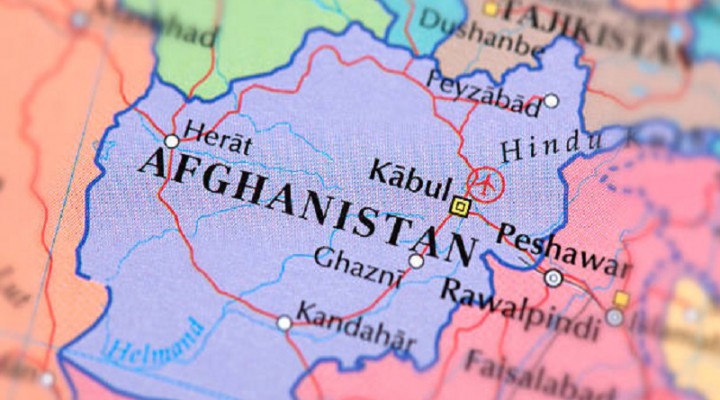Moscow’s Right: It’s Time For A Multipolar Five-Party Mechanism For Assisting Afghanistan

Despite India and Iran’s unofficial differences with Pakistan on certain aspects of the so-called “Afghan Question”, this quintet still has strong prospects for success. The reason for this assessment is that they’re all stakeholders in Afghanistan’s security and development, without which their shared larger region will be destabilized to each of their detriment.
Afghanistan continues to struggle despite the Western withdrawal that was completed at the end of summer 2021, largely because of a combination of factors attributable to: the US unilaterally freezing several billion dollars of that country’s assets in its jurisdiction; the Taliban stubbornly refusing to create a truly ethno-regionally and politically inclusive government; and ISIS-K’s rise amidst the chaos. The prior “Extended Troika” mechanism consisting of the American, Chinese, Pakistani, and Russian special envoys to Afghanistan has also failed to achieve anything tangible due to Washington’s continued obstruction.
It therefore naturally follows that a new mechanism is required in order to pragmatically manage the security challenges stemming from that country, not to mention helping its de facto Taliban authorities (who still aren’t officially recognized by any foreign government) sustainably reconstruct their state. Therein lies the pragmatism behind Russian Security Council Deputy Secretary Alexander Venediktov’s proposal that he just shared with TASS on Tuesday whereby the defunct Extended Troika would be replaced with a multipolar five-party mechanism instead.
According to this high-level security official, “taking into consideration the non-constructive approach of the US to its work, a five-party mechanism with the participation of Russia, China, Pakistan, Iran and India started to shape.” This is certainly the case, and that emerging platform’s effectiveness has been bolstered by its members’ regular consultations with their Central Asian counterparts as well as close coordination with the SCO. Despite India and Iran’s unofficial differences with Pakistan on certain aspects of the so-called “Afghan Question”, this quintet still has strong prospects for success.
The reason for this assessment is that they’re all stakeholders in Afghanistan’s security and development, without which their shared larger region will be destabilized to each of their detriment. While the US does indeed appear to be leveraging the post-modern coup that it orchestrated in Pakistan last April in the direction of catalyzing a grand strategic reorientation in South Asia by returning that country back under its hegemonic fold, some members of its national security and policymaking establishment (sometimes one and the same) have thus far prevented this from fully unfolding.
So long as America isn’t able to play the “Pakistani wild card” by ordering local influential proxies to throw the region into chaos at the expense of their country’s own objective national security interests, then the emerging multipolar quintet on Afghanistan will likely result in some positive dividends for all. This prediction is being made in spite of that same South Asian state being largely suspected of at the very least “passively facilitating” an infamous US drone strike against its neighbor in early August, which while worrisome for the larger region’s stability, thankfully hasn’t been followed by more such attacks.
Key to the success of Russia’s proposed platform is that its members have enough trust in one another to coordinate their Afghan stabilization efforts in the anti-terrorist and economic-investment spheres. Each of those five stakeholders can share intelligence about the former through the SCO in which they all participate if they feel uncomfortable directly passing along related information like might be continue to be the case with India and Iran on one hand and Pakistan on the other. Regarding economics-investments, this emerging platform could likely see much more direct coordination.
For instance, those five countries have unique roles to play in Afghanistan’s sustainable reconstruction. China’s Belt & Road Initiative (BRI) can easily expand into that neighboring war-torn country because Beijing still has enough excess capital on hand in spite of the global economic crises caused by COVID-19 and the Ukrainian Conflict to significantly invest to that end. Russia, meanwhile, has already been informally chosen by the Taliban to play a big role in its geo-economic balancing act vis a vis that ([formerly?] aspiring) superpower, which will preemptively avert any disproportionate dependence.
As for Iran, it’s one of the two anchors of the China-Central Asia-West Asia Economic Corridor (CCAWAEC) alongside Turkey and also clinched a reported $400 billion quarter-century-long strategic partnership deal with Beijing in spring 2021. It therefore follows that its role naturally complements China’s when it comes to Afghanistan’s regional connectivity prospects. Furthermore, Tehran enjoys a lot of goodwill and trust among some of its neighbor’s minorities, which can facilitate that country’s sustainable reconstruction by getting all domestic stakeholders on board without exception.
Pakistan plays a complementary connectivity role too when it comes to February 2021’s agreement to build a Pakistan-Afghanistan-Uzbekistan (PAKAFUZ) railway, which will imbue Kabul with North-South connectivity potential upon completion. India, meanwhile, is seen by the Taliban as an indispensable partner for bolstering its balancing act vis a vis Islamabad exactly as Moscow is expected to do when it comes to Beijing. Furthermore, Delhi was already a major investor in Afghanistan prior to the Western withdrawal, having hitherto had projects in literally every one of that country’s regions.
Taken together, the emerging multipolar quintet on Afghanistan can actually help make a meaningful difference unlike the Extended Troika since there aren’t any spoilers whose interests rest in destabilizing this larger region like the US’ in the second-mentioned platform. The mutual distrust between India and Iran on one hand and Pakistan on the other, not to mention growing American influence over Islamabad’s post-modern coup regime, are admittedly issues of concern that deserve monitoring. Nevertheless, they’re not insurmountable, hence why Russia’s envisaged platform remains realistic.
 TheAltWorld
TheAltWorld 
0 thoughts on “Moscow’s Right: It’s Time For A Multipolar Five-Party Mechanism For Assisting Afghanistan”